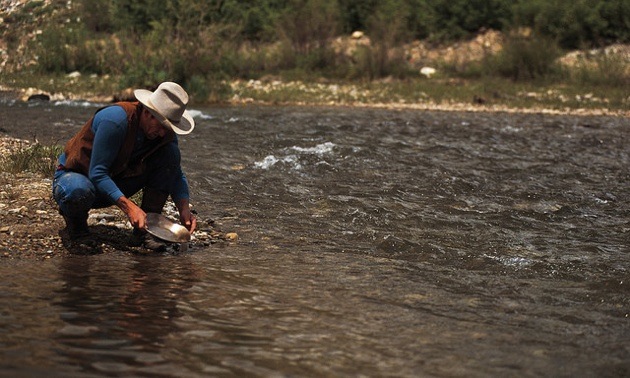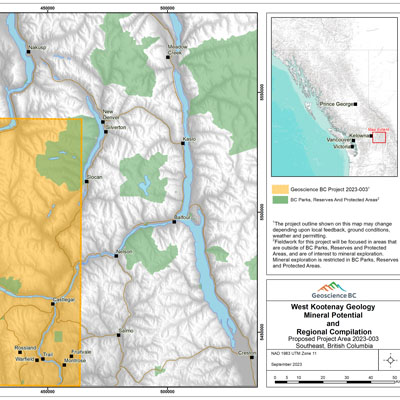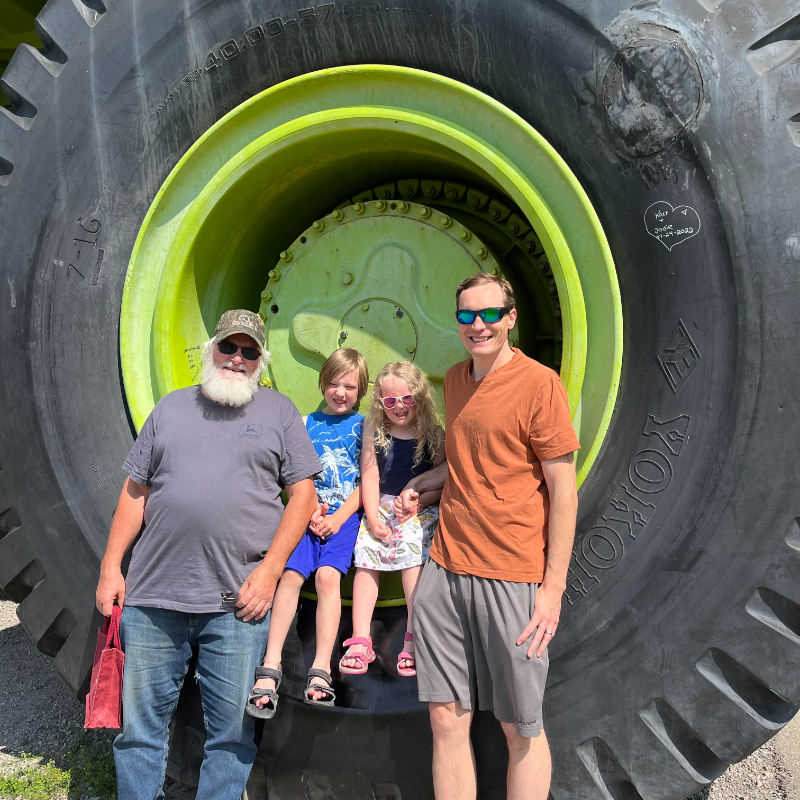East Kootenay Chamber of Mines moves to protect prospectors
Discussions are ongoing with the provincial government about protecting grassroots explorers from excessive new fees.

Grassroots level exploration has always been fairly active in the Kootenay region, especially in gold and base metal minerals. — Photo courtesy Comstock/Stockbyte/Thinkstock
The East Kootenay Chamber of Mines has been in discussions with the provincial government since the province tabled the idea of charging a fee to process notice of work (NOW) applications beginning in 2015.
The notice of work is submitted when making an application for a mining permit. The new fee acts as an administrative tariff and wouldn’t guarantee the applicant’s request will be granted. In its current form the fee structure would assign a monetary value to projects by size—projects less than one hectare would cost $2,000; two to three hectares $4,000, and over three hectares would cost explorers $6,000.
The province is set to implement the fee to make up for a funding shortfall in the Ministry of Mines which resulted from that ministry requiring additional workers to process a backlog of applications. The Ministry of Mines used $5 million in provincial funds to have the applications processed in a timely fashion, but the Ministry of Finance says it will no longer cover the shortage.
Fees could be devastating
Jason Jacob, president of the East Kootenay Chamber of Mines, said although the fee understandably addresses a funding shortfall, its implementation could be devastating for the small-scale, self-funded explorers whose work essentially carries the provincial industry.
“They are the ones who use their personal money to find resources in ground, and they have no other income,” Jacob said. “To have pay a $2,000 fee is ludicrous.”
Low level prospectors already face $5,000 to $10,000 in fees for an environmental bond, not to mention equipment, travel, food and living expenses, with no immediate and consistent income, said Jacob.
“Whether you are a small guy banging rocks or a slightly larger operation, you shouldn’t have to pay,” he said. “We are doing a favour to the people of this province because if we find a mineral resource it benefits the entire province. This document is a slap because it is saying that even though we are spending all of our own money on these projects, it isn’t good enough. They want us to pay more.”
The proposed change came down the pipes quickly, said Jacob, and without any real consultation, so the industry was taken aback.
Under the Mines Act there is no implementation for applying fees or servicing fees, meaning to be instituted the NOW fee will have to go through legislation.
Finding the money
Although it is a key economic driver in the province, mining doesn’t pay into the Ministry of Mines the way forestry sustains the Ministry of Forests Lands and Natural Resources Operations, Jacob said.
“When forestry went down, the mining industry brought $400 million a year to the government,” he said, naming $200 million in direct taxation and another $200 million in employee income taxes.
“All other ministries have self-generation plans to keep them running,” he said. “Mining doesn’t because of the excessive amount to come out of taxation, except that money goes directly to the province and not to support the ministry.”
Jacob met with East Kootenay MLA Bill Bennett at the end of March to discuss the options. Calling the discussion paper that announced the fee a “knee jerk reaction,” Jacob said the bottom line is that the chamber is not backing down from a position of zero fees on the bottom end, and across the board.
“But we also know the Ministry of Mines has to generate the money from somewhere,” he said. “We are working with the ministry and will continue to work towards possibly drawing a line where the fees might kick in. Our industry has been asked to come up with the line, and they have to raise the money no matter what. So what is mining and what is exploration? The ministry is also looking at footprint.”
Defining the difference
The Chamber of Mines is proposing that the government differentiate between exploration companies or individuals who are working on the development of an operation or are in a phase going into development, or are operating at a higher level with regular income, and independent, grassroots explorers who are funding their own work through personal savings.
“There is an idea in the industry that fees may be possible at the higher level of exploration, but to protect the snake, you can’t cut off its head,” said Jacob. “In the same way, the grassroots prospectors and explorers have to be protected.”
Grassroots level exploration has always been fairly active in the Kootenay region, especially in gold and base metal minerals. Although the recession saw some projects placed on the back burner, B.C.’s economic turnaround is spurring activity. Implementation of the fee in its current form would have a huge impact on the Kootenay region, said Jacob, because it would force people to either leave the region to explore elsewhere or force people to break the law.
“In those cases, it would be regulating law-abiding citizens into criminals,” he said.
Discussions are an ongoing process at this point, said Jacob.
“If this fee process is going to happen, we are trying to limit its damage,” he said. “It’s a matter of dealing with that and making it palatable for the industry to carry on at a good pace.
“The Ministry of Mines has to find a way to sustain itself at a level where it isn’t subject to the industry’s spikes and low points, so paperwork is processed quickly and companies can quickly get back out into the field and continue benefiting the province.”





Comments